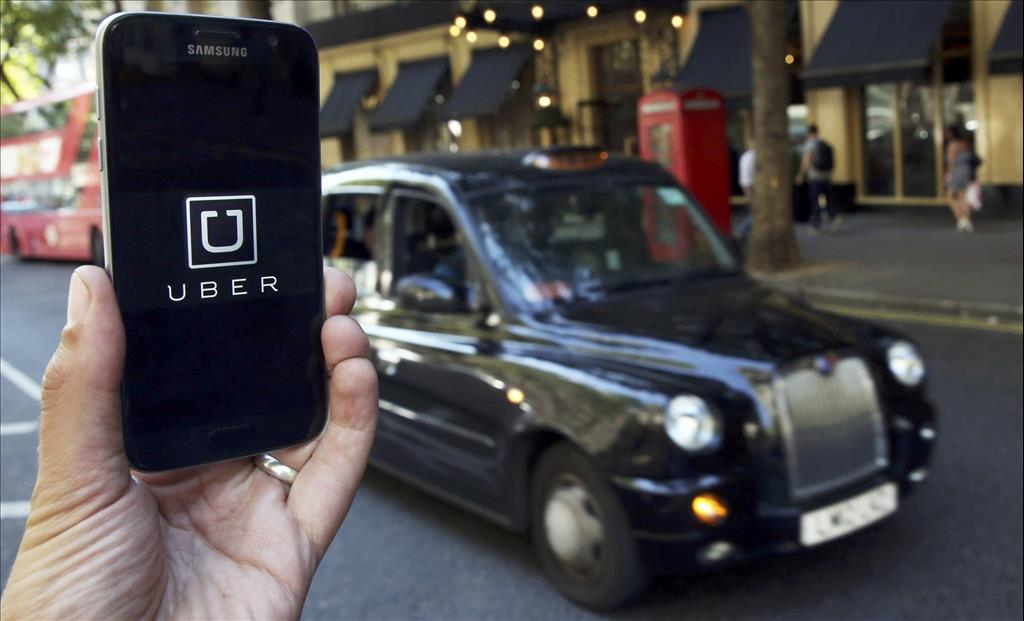
Three challenges disruption poses for Signapore
Clayton Christensen from Harvard Business School in 1995 described disruption as an innovation that "creates a new market and value network and eventually disrupts an existing market and value network, displacing established market-leading firms, products and alliances".
In recent times, Travis Kalanick, co-founder of ride-hailing application platform Uber, has taken disruption into mainstream consciousness. The term "uberisation" has become synonymous with disruption. A popular Internet meme frames the company as "the world's largest taxi company that owns no cars". Yet Uber has never regarded itself as a cab company - Mr Travis told CNN that Uber is "a technology platform that connects riders and drivers".
The DailyBrief Must-reads from across Asia - directly to your inboxHarvard Business School professor John Kotter asserts that globalization and technology are key drivers of disruption. Since Singapore tops the list of economies that are both globalized and connected, it might be worthwhile to examine three challenges that disruption is likely to bring about.
Displacement of legacy
In April this year, both Uber and rival Grab initiated fare cuts which saw average fares falling by around 15 per cent. To compensate drivers for the revenue loss, Uber raised their monetary incentives despite losses of about US$1.27 billion in the first half of 2016. While this approach continues to bleed Uber's balance sheet, the company's appetite for growth is a massive competitive advantage over legacy taxi companies.
The total taxi fleet in Singapore stands at about 29,000 cabs. Uber's disruption of Singapore's taxi industry places the employment of cab drivers at risk. In this impending scenario, do taxi drivers realize that despite incessant calls to regulate drivers of ride-sharing apps, the disruption of the taxi industry is inevitable?
Moreover, there is no letting up of Uber's capacity for growth. Market Watch reported that funds invested in derivatives alone total US$1.2 quadrillion, a quantum that dwarfs the amount of money in all stock markets combined. These enable fund managers to amass mammoth war chests for companies such as Uber. So, when Singapore's National Taxi Association lamented that "the playing field (between taxi companies and Uber) is not level," it had missed the point. The playing field will never be level. Which brings me to the second challenge for open economies, which is in helping their people understand the consequences that disruptors bring to the table.
Embracing disruption with open arms and open eyes
Uber at its core is a technology company, which operates on a different algorithm than any taxi company in Singapore. While shareholders hold legacy firms to conventional models of evaluation such as the company's bottom line, investors in disruptor firms are primarily concerned with growth momentum, which often translates to gargantuan valuations.
Having raised another US$12.5 billion months ago, Uber today has an implied valuation of US$66 billion. By comparison, ComfortDelGro - Singapore's largest taxi operator - has a market capitalization of less than 10 per cent of Uber's valuation. Uber is in more than 450 cities across the globe. In the United States alone, more than 450,000 drivers use the Uber mobile app daily. When one considers the other aspects of its business model, such as Uber's focus on research and development (the company recently announced an experiment in Pittsburgh to pioneer autonomous vehicles), these differences are even starker.
But Uber's growth will eventually plateau, which might trigger a flight of capital, just as we have seen in once-hot stocks such as Twitter and LinkedIn (months before it was acquired by Microsoft). But before that happens, Uber would have been prepared to cut out one of its most significant cost centers: its drivers. After all, Uber regards its drivers as independent contractors, not employees, whose daily trips offer data that fine-tunes the autonomous navigational capabilities of Uber's technology platform. But what happens when these independent contractors become displaced by the very disruption they had helped to engineer?
The third challenge facing Singapore is its ability to inspire in people that necessary appetite for continuous improvement, to cope with the disruption.
Role of private education institutions in a Learning Nation
Uber is but one of many new-economy companies that are poised to disrupt open economies. Indeed, Singapore's leaders have rallied the country to recognize disruption as "a defining challenge" to its economy.
Singapore's greatest resource is its people, and underscoring the government's efforts to position the economy for the future is the development of its human capital through continuous learning. As the government seeks to mold Singapore into a Learning Nation, institutes of higher education from the private sector, such as PSB Academy (PSBA), can also play their part by contributing to Singapore's industry-ready talent pool, while also serving as vanguards for experimentation of new pedagogy and learning experiences before they are embraced by larger, public institutions.
Over 11,000 students study at PSBA every year on both full-time and part-time basis. Students benefit from advanced teaching methods such as "flipped classrooms" where, instead of rote learning, they mostly learn through collaboration. These pioneering methods of learning and engaging with industry contribute to PSBA's track record of producing graduates who are industry-ready. In 2015, PSBA's graduate employment survey found that about nine in 10 students found employment within six months upon graduation, while six in 10 students saw pay raises or career switches that earned them better pay packages. These figures show that private institutions can play a complementary role in Singapore's ecosystem for human capital development alongside public institutions, to help the country thrive in this age of disruption.
Share Tweet Linkedin Email Singapore Technology Uber uberisation autonomous vehicles disruption Markets PSBA
Legal Disclaimer:
MENAFN provides the
information “as is” without warranty of any kind. We do not accept
any responsibility or liability for the accuracy, content, images,
videos, licenses, completeness, legality, or reliability of the information
contained in this article. If you have any complaints or copyright
issues related to this article, kindly contact the provider above.

















Comments
No comment